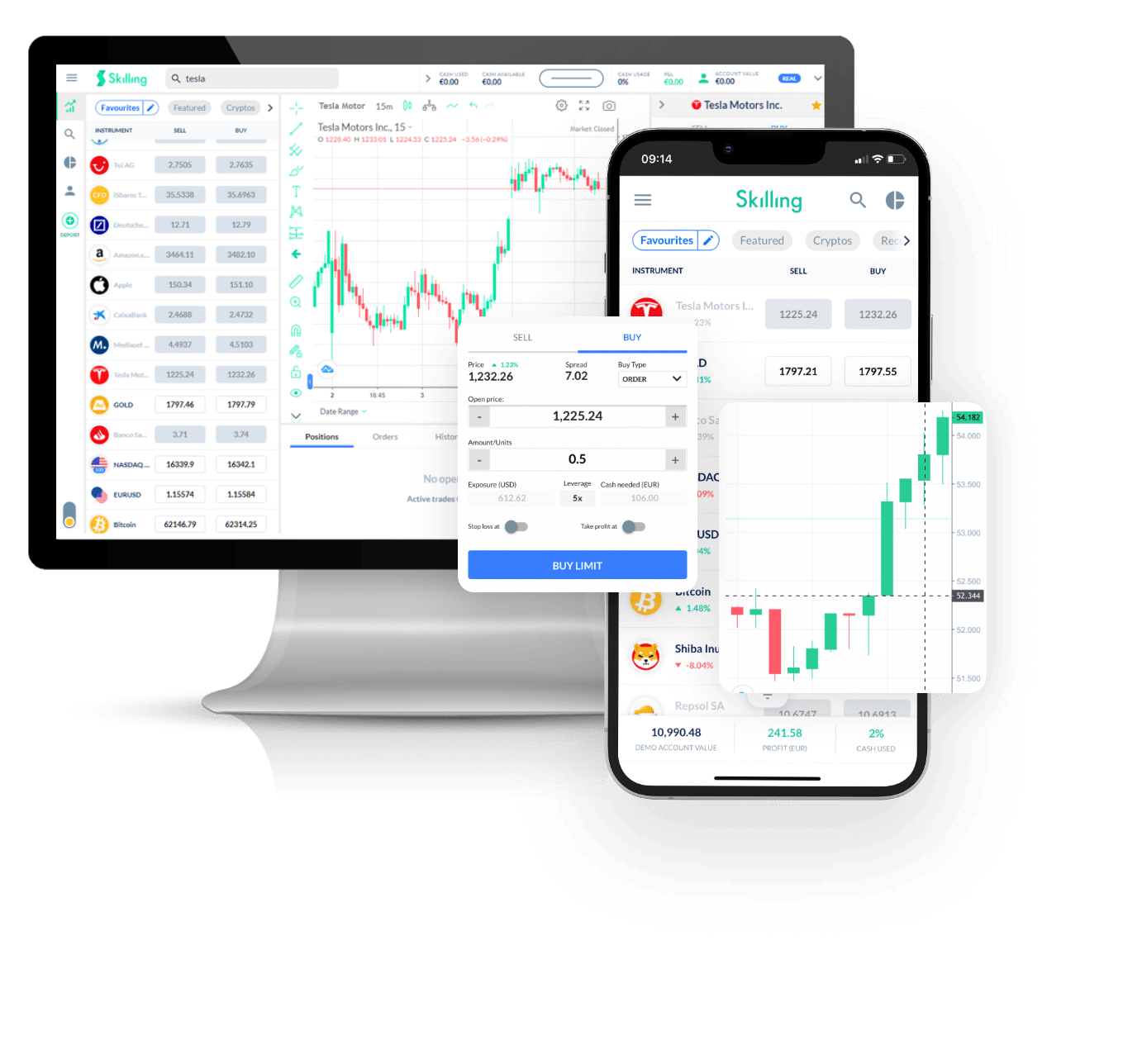Loading...
NZDUSD: Live Price Chart
[[ data.name ]]
[[ data.ticker ]]
[[ data.price ]] [[ data.change ]] ([[ data.changePercent ]]%)
Low: [[ data.low ]]
High: [[ data.high ]]
About
History
Why trade NZDUSD?
About
History
Why trade NZDUSD?
The NZD/USD currency pair represents the exchange rate between the New Zealand Dollar (NZD) and the United States Dollar (USD). It is one of the major currency pairs in the foreign exchange (Forex) market. The NZD/USD pair is also commonly referred to as the "Kiwi" due to the Kiwi bird depicted on the NZ $1 coin.
Here's how the conversion works:
When the NZD/USD pair is quoted as 1.00, it means that 1 New Zealand Dollar is equivalent to a variable number of US Dollars. For example, if the exchange rate is 0.70, it means that 1 NZD is equal to 0.70 USD. The conversion rate fluctuates based on various factors such as economic indicators, interest rates, geopolitical events, and market sentiment.
The NZDUSD currency pair has seen its share of fluctuations within the past five years. The currency pair's lowest rate was $0.5470, recorded in March 2020, while its highest rate of $0.7466 was recorded in February 2021.
As a trader, it is important to note that the NZDUSD currency pair's volatility could be influenced by several factors. For instance, political changes, economic indicators, and global events could affect the currency pair's price fluctuations. Therefore, traders should keep an eye on news that may affect currency pairs they are trading.
Traders may also implement different trading strategies when trading the currency pair. For example day trading normally involves opening and closing trades within a day, while swing trading requires holding positions for a few days or weeks. Traders may also consider using technical analysis tools and indicators when analyzing the currency pair's price action. For example, moving averages are a commonly used trading tool that helps traders identify trends.
Traders may consider trading the NZD/USD currency pair for several reasons. Firstly, the pair is often perceived as a carry trade due to interest rate differentials favoring the New Zealand Dollar (NZD). This makes it attractive for traders looking to take advantage of potential interest rate differentials and earn carry trade profits. Additionally, New Zealand's economy heavily relies on international trade, making the NZD susceptible to fluctuations in commodity prices, particularly in agriculture and dairy products.
However, there are certain disadvantages traders should be aware of when trading NZD/USD. The pair could experience volatility and market uncertainty, especially during times of global economic instability. Traders should also consider the impact of geopolitical events on both the New Zealand and US economies. Other currency pairs that traders may consider when trading NZD/USD include: AUD/USD, USD/CAD and EUR/USD.
| Swap long | [[ data.swapLong ]] points |
|---|---|
| Swap short | [[ data.swapShort ]] points |
| Spread min | [[ data.stats.minSpread ]] |
| Spread avg | [[ data.stats.avgSpread ]] |
| Min contract size | [[ data.minVolume ]] |
| Min step size | [[ data.stepVolume ]] |
| Commission and Swap | Commission and Swap |
| Leverage | Leverage |
| Trading Hours | Trading Hours |
* The spreads provided are a reflection of the time-weighted average. Though Skilling attempts to provide competitive spreads during all trading hours, clients should note that these may vary and are susceptible to underlying market conditions. The above is provided for indicative purposes only. Clients are advised to check important news announcements on our Economic Calendar, which may result in the widening of spreads, amongst other instances.
The above spreads are applicable under normal trading conditions. Skilling has the right to amend the above spreads according to market conditions as per the 'Terms and Conditions'.

Trade [[data.name]] with Skilling
Hassle-free, with flexible trade sizes, and super low spreads!
- Spreads starting at 0.2!
- Average Execution at 5ms
- Easy to use platform
*Other fees may apply.
Why Trade [[data.name]]
Make the most of price fluctuations - no matter what direction the price swings and with low capital investment.
Forex
Capitalise on rising prices (go long)
Capitalise on falling prices (go short)
Trade with leverage
Trade on volatility
Enjoy huge liquidity
Manage risk with in-platform tools
Ability to set take profit and stop loss levels

